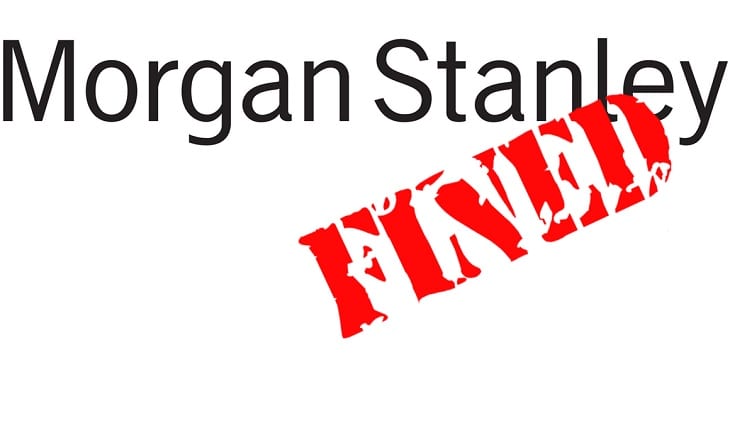The U.S. Securities and Exchange Commission today announced that the Morgan Stanley Smith Barney unit of global investment bank Morgan Stanley (NYSE:MS) has agreed to pay a $13 million penalty to settle charges that it overbilled investment advisory clients due to coding and other billing system errors. The firm also violated the custody rule pertaining to annual surprise examinations.

According to the SEC’s order, Morgan Stanley received more than $16 million in excess fees due to the billing errors that occurred from 2002 to 2016. Morgan Stanley has reimbursed this full amount plus interest to affected clients.
“Investors must be able to trust that their investment advisers have put appropriate safeguards in place to ensure accurate billing. The long-running deficiencies in those safeguards at Morgan Stanley resulted in 36 different types of billing errors that caused overcharges to customers,” said Andrew M. Calamari, Director of the SEC’s New York Regional Office.
The SEC’s order further finds that Morgan Stanley failed to comply with the annual surprise custody examination requirements for two consecutive years when it did not provide its independent public accountant with an accurate or complete list of client funds and securities for examination. Morgan Stanley also failed to maintain and preserve client contracts.
“The custody rule’s surprise examination requirement is designed to provide clients protection against assets being misappropriated or misused,” said Sanjay Wadhwa, Senior Associate Director of the SEC’s New York office. “Morgan Stanley failed in consecutive years to do what was required of it to give investment advisory accounts that important protection.”
Without admitting or denying the findings that it violated various provisions of the Investment Advisers Act of 1940 and related rules, Morgan Stanley consented to the SEC’s cease-and-desist order and agreed to the $13 million penalty, a censure, and undertakings related to its fee billing and books and records practices.
